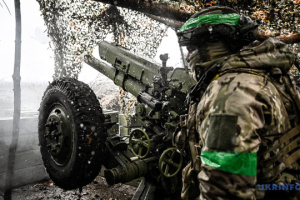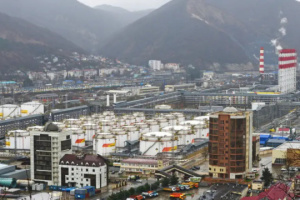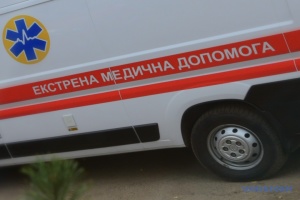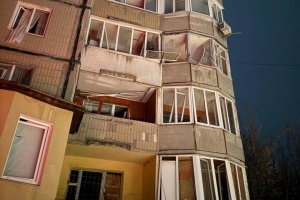
Ukraine Latest: Weekly Digest for November 25 – December 1, 2024
MAIN EVENTS OF THE WEEK
November 25: The NATO Parliamentary Assembly adopted a resolution urging for sustaining and increasing the "military, financial, and humanitarian support for Ukraine, ensuring the timely delivery of munitions and advanced weapon systems, including air defense systems, long-range precision weapons, and multi-role fighter aircraft. The resolution furthermore urges “member governments and parliaments of the North Atlantic Alliance to step up political and practical efforts to help Ukraine receive an invitation and become the 33rd member of NATO as soon as possible" and calls for tougher sanctions against Russia and its allies. "The Assembly urges member governments and parliaments of the North Atlantic Alliance to strengthen the sanctions framework against the Russian Federation and the DPRK in order to increase the price for their cooperation in the aggression against Ukraine, and provide Ukraine with all the means, including medium-range missiles, to defend itself and deter further aggression," the resolution reads. Finally, the document stresses the need for political and economic pressure to " deter China from supporting Russia’s war effort."
Next year’s EU budget has been signed into law by European Parliament’s President Roberta Metsola. Over €230 million added for key programmes aimed at improving people's lives, boosting competitiveness, and addressing current challenges. Total budget for 2025 is €199.4 billion in commitments, payments are set at €155.21 billion. The 2025 budget will be 6% larger than this year’s, meaning a €10 billion increase.
November 27: The UN Security Council, at an emergency meeting, called Russia's November 21 ballistic intermedium-range missile attack on the Ukrainian city of Dnipro and the involvement of North Korean troops in Russia’s war against Ukraine a dangerous escalation of the war, which has already cost Ukrainians too much.
November 27: US President Joe Biden made a long-shot request to lawmakers for another $24 billion to aid Ukraine and replace U.S. weapons that have been sent into the fight against Russia before he leaves office. The proposal, which has not yet been made public, allocates $16 billion to replenishing U.S. weapons stockpiles and $8 billion to the Ukraine Security Assistance Initiative (USAI), a program where the Pentagon contracts manufacturers instead of directly supplying equipment from its reserves. The Biden administration plans to include the request in a broader government spending package that lawmakers are expected to consider in December.
COMMENT: Oleksandr Krayev, analyst at the Ukrainian Prism Foreign Policy Council: "Actually, the question is how actively and quickly Congress will be ready to distribute its "portfolios" (after the November presidential and congressional elections), that is, will it wait until the inauguration (of Donald Trump - ed.) to begin full-length work, or will it work here and now."
Ukraine has received US$4.8 billion from the World Bank as part of the Public Expenditures for Administrative Capacity Endurance (PEACE) project. "This is the largest investment project in the history of the Bank, launched to support our country in implementing reforms, social and educational sectors, healthcare, agricultural producers, as well as recovery projects", Ukrainain PM Denys Shmyhal said in a comment.
November 28: President Volodymyr Zelensky has enacted Ukraine’s state budget for FY2025 into law. Prime Minister Denys Shmyhal’s comments: Ukraine's defense remains the budget's priority: funding for the security and defence forces, procurement and production of weapons, drones, and equipment. "We're allocating UAH 2.23 trillion [approx. US$53.6 billion] for this purpose." UAH 420.9 billion (approx. US$10.12 billion) is allocated for social security programs, UAH 217 billion (approx. US$5.2 billion) for healthcare, and UAH 199 billion (approx. US$4.8 billion) for education. Overall, next year's budgetary expenditures are projected at UAH 3.6 trillion (US$86.6 billion), with revenues projected at UAH 2.05 trillion (US$49.3 billion).
The European Union and Ukraine have signed a memorandum for the disbursement of macro-financial assistance worth about €18.1 billion. “Such a step is not only support, but also a precedent for bringing Russia to justice for its crimes and starting the process of making the aggressor pay for its brutal war,” Ukrainian Prime Minister Denys Shmyhal wrote in a comment on Telegram. The memorandum of understanding is necessary to allocate €18.1 billion. It is part of the G7 package worth $50 billion, which will be funded by windfall proceeds from immobilized Russian central bank assets. Earlier, the European Union, USA and UK announced their allocation of funds under this initiative, with Japan having committed to provide $3 billion.
November 26: The European Parliament, at its plenary session in Strasbourg Tuesday, adopted a resolution, adopted by a majority vote, on reinforcing EU’s unwavering support to Ukraine against Russia’s war of aggression and responding to growing military cooperation between North Korea and Russia.
November 29: Ukraine’s three operating nuclear power plants (NPPs) reduced their electricity generation on Friday morning following renewed attacks on the country’s energy infrastructure that further endangered nuclear safety during the military conflict, Director General Rafael Mariano Grossi of the International Atomic Energy Agency (IAEA) said in a statement. For a second time in less than two weeks, the Khmelnytsky, Rivne and South Ukraine NPPs lowered their power levels as a precautionary measure during widespread military activities in the country. The operating NPPs have a total of nine reactors, all of which decreased output. One reactor, at the Rivne NPP, was also disconnected from the grid. The NPPs continued to receive external electricity, even though the Khmelnytsky site lost the connection to two of its power lines. “Ukraine’s energy infrastructure is extremely fragile and vulnerable, putting nuclear safety at great risk. Once again, I call for maximum military restraint in areas with major nuclear energy facilities and other sites on which they depend”, Grossi said.
COMMENT: Sean Burney, a nuclear analyst at Greenpeace Ukraine: “After months of failure to deploy inspectors to critical power substations, the IAEA Director General, on November 17, assured the Ukrainian Minister of Energy that the agency “is ready to dispatch relevant missions in the near-term future.” The IAEA is fully aware of the risks, but has so far decided not to act now. The future that Grossi is talking about has already arrived, and this is a genuine emergency in which every day, every hour counts. The IAEA’s statements are not what protects Ukrainian nuclear plants from Russia’s missile attacks.”
THE WAR AS IT IS
November 25/ Bratchuk: The adversary has nothing to assault Zaporizhzhia with
November 26/ Zhukov: More insidious than missiles: Media and psychological operations by the Russian Federation are a powerful component to the war
November 26/ Nation of the Invincible: Yuriy Bilous on Russia’s war crimes, defense of the Ukrainians, cooperation with the ICC, Ukrainian courts and potential detention of Putin
November 27/ Katkov: Why are sanctions ineffective to affect the combat capability of dictatorship countries?
November 27/ Interview, Nad: Treason accusations for the transfer of MiGs to Ukraine are crazy politization
November 28:/ Shorts, Nad: The reasons why European countries should be supportive of Ukraine's integration with the EU and NATO
November 28/ Yermak: "Ukraine did it: Nothing-about-Ukraine-without-Ukraine principle is coming into reality"
November 25:/ The fourth phase of the "Heroes' Stories" project was launched in Dnipro city
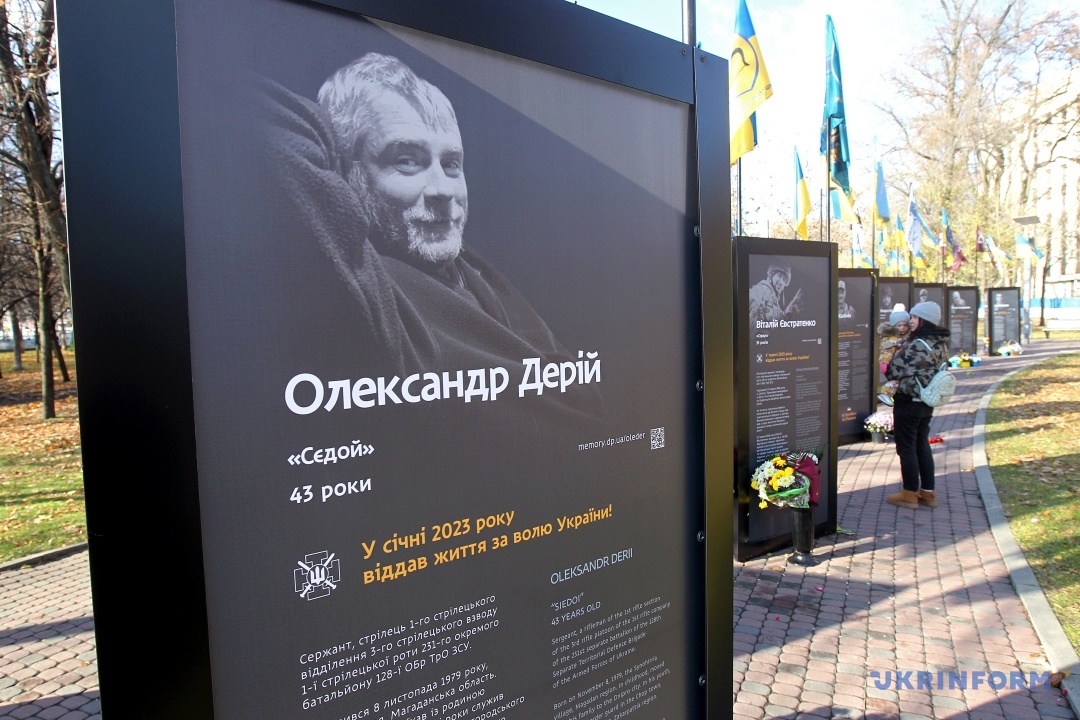
November 26/ A new mine-clearing machine was unveiled in Kharkiv city
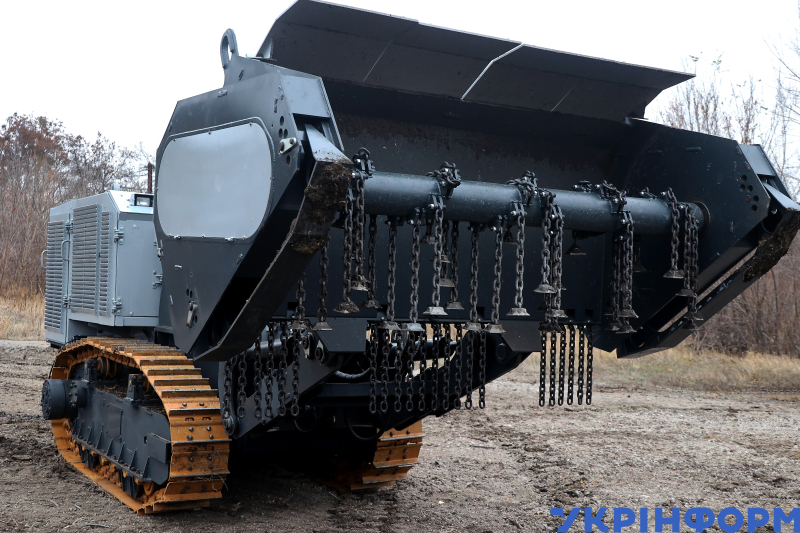
November 27/ The Grain Corridor through the Black Sea keeps going as Russia continues its pounding attacks
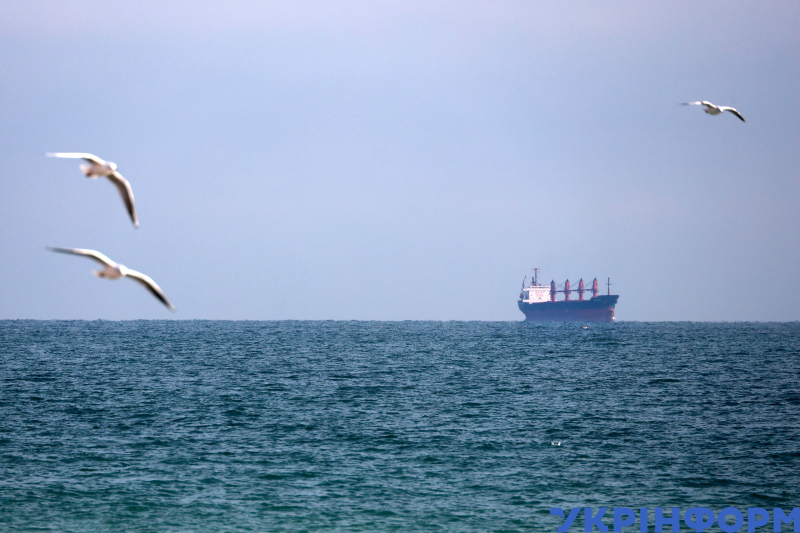
November 28/ The aftermath of a Russian missile attack on the Odesa region
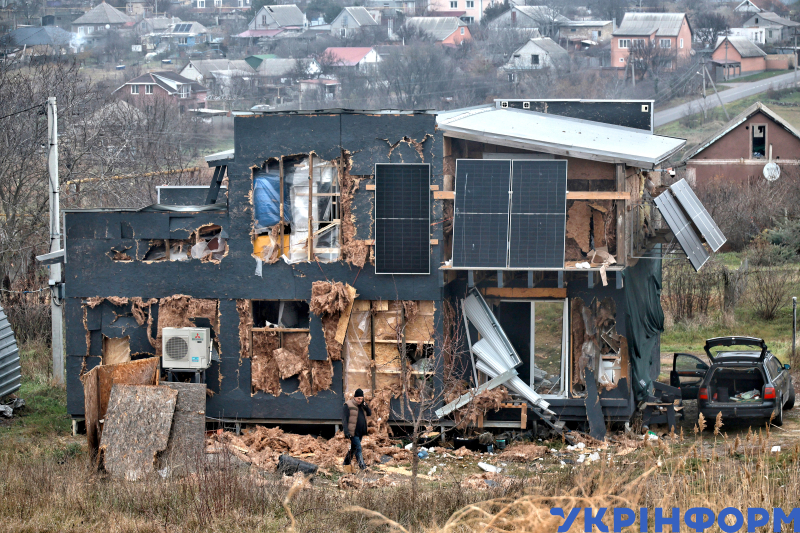
November 29/ The aftermath of falling debris from a downed drone over Kyiv’s Dniprovsky District
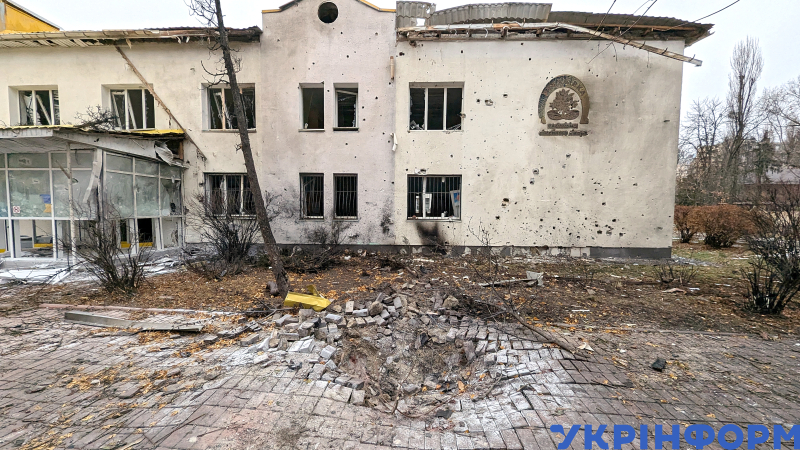
November 29/ The unveiling of the photo display and calendar "The Invincible from the Vinnytsia Region”
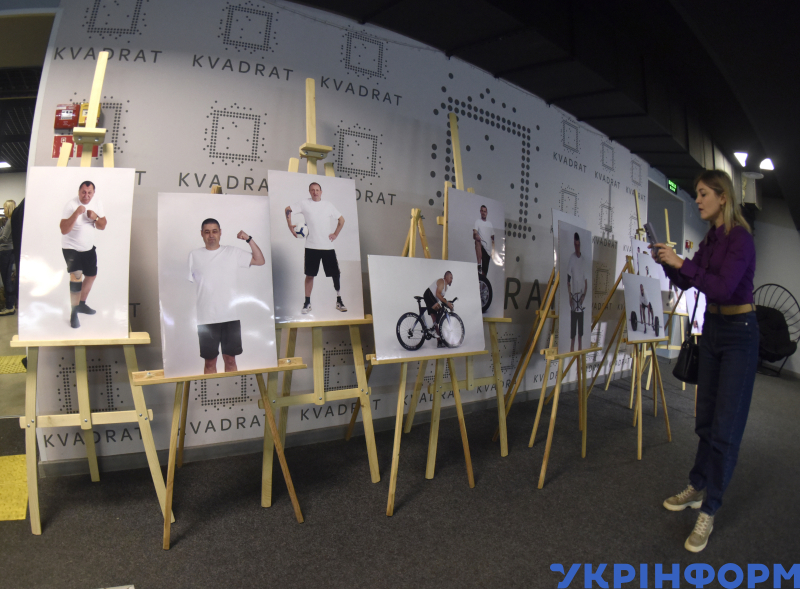
UKRAINIAN BATTLEFIELDS
Armed Forces Supreme Commander Volodymyr Zelensky:
November 25: heard a report from the Armed Forces Chief Commander Oleksandr Syrsky regarding the battlefield situation in key areas of the front. Kurakhove remains the most challenging section of the front. The situation on the Zaporizhzhia front is under control by the Defense Forces. In the Kursk region of Russia, Ukrainian troops are holding up their defense while inflicting dramatic losses on opposing Russian forces.
November 25: chaired a meeting of the Supreme Commander-in-Chief's Staff addressing the progress of recovery effort in the aftermath of Russia’s November 17 drone and missile raids, along with measures deemed necessary to make the country’s critical infrastructures more resilient to potential attacks.
November 29: appointed Mykhailo Drapaty as new commander of the AFU Ground Force and Oleh Apostol as deputy chief commander of the Armed Forces of Ukraine.
Ukrainian attacks on the Russian Federation and Russia occupied Ukraine
November 25: Overnight on Monday, the Defense Forces of Ukraine launched a wave of attacks with missiles and self-explosive drones targeting several critical facilities in the Bryansk, Kaluga and Kursk regions of the Russian Federation. One such attack targeted the Khalino air base located approximately 96 kilometers (60 miles) from the Ukrainian border, which is home to Su-30SM aircraft from the 14th Fighter Regiment of the 105th Mixed Aviation Division. Ukrainian forces struck the site with the Pentagon-provided Army Tactical Missile System (ATACMS) missiles as part of a broader effort to retain control over territory captured in Ukraine’s August offensive. Another attack targeted a Russian command post in the embattled Kursk region. Reports suggest that strategic targets, including military facilities and equipment were hit in Monday attacks on Russia.
COMMENT: Oleksandr Kovalenko, defense and policy analyst:“The Defense Forces of Ukraine currently can choose from a diverse variety of means of defeat… While ATACMS arrived in Khalino, in Kaluga, drones hit an oil storage site located nearby the Typhoon Instrument & Apparatus Factory, which manufactures coastal defense missile systems and other products for the needs of the Russian Navy.”
Drones operated by Ukraine's HUR defense intelligence agency hit a fuel & energy facility in the western Russian city of Kaluga. The target of the attack was an oil storage site run by Kaluganefteprodukt JSC, which is involved in supporting Russia's war aggression against Ukraine. A series of explosions and a fire at the site were reported in the aftermath of the attack.
Ukrainian launched drones hit Taifun (Typhoon) factory, also in Kaluga, a manufacturer and supplier of electronic equipment and components, missile and aircraft parts along with a variety of other defense-related products. A major fire was reported to have ignited at the site in the aftermath of the attack.
OSINT analysts reported an overnight attack on Russian Air Force base in Kaluga Oblast. Ukraine fired eight ATACMS cluster-warhead missiles targeting a combat aircraft parking lot at the Kursk Vostochny airbase. Russia’s defense ministry claimed seven of the eight missiles launched had been allegedly shot down by Russian air defenses, but one was able to go through air defenses and reach its target, injuring two soldiers and damaging infrastructure.
November 27: Ukrainian armed forces attacked Belbek airfield in Sevastopol city in Russian-controlled Crimea. It is reported that approximately 40 UAVs, low-altitude Neptune anti-ship missiles, and ballistic missiles of an unidentified class [presumably Storm Shadow] were launched. Various types of Russian combat aircraft are currently deployed at the Belbek airbase in Crimea. Among them are Su-27 fighters [including the Su-27SM and Su-27UB modifications] and SU-30M2, which are part of the 38th Fighter Aviation Regiment. Belbek also serves as a base for strategic MiG-31s, of which some have been modified to carry and launch Kinzhal class of hypersonic missiles. Plumes of smoke were observed rising over the building of Nakhimov Naval College in Striletska Bay after the attack.
November 27: Drone wreckage was discovered in Zernograd, the Rostov region of Russia. The town is home to a military airfield housing Mi-8 and Mi-28NM helicopters. Drones were also reported to have targeted the settlement of Chkalov Hutor, Mysnikovsky District, Rostov Oblast, which is home to Russia’s 381st Guards Artillery Regiment. The aftermath of the attack is yet to be verified and confirmed.
November 29: Ukraine’s HUR defense intelligence service reported successful strikes on radar systems deployed in the currently Russian controlled Crimea peninsula. A Kasta-2E2 radar system and two Podlyot radars were reported to have been destroyed. The 48Ya6-K1 Podlyot is used to provide target designation for S-300, S-400, and similar air defense systems, and boasts being able to simultaneously track down up to 200 targets flying at low to extremely low altitudes. The 39Н6 Kasta-2E2 is a vehicle-based, two-dimensional, 360-degree, decimeter-range radar which is designed to monitor the airspace situation and provide location coordinates and identification of airborne threats, including those flying at extremely low altitudes.
November 29: An explosion was reported heard in the village of Vityne, located outside of Saky city in currently Russian occupied Crimea, presumably destroying an S-400 Triumph missile defense system.
November 29: The Ukrainian military delivered a strike targeting the Atlas oil storage facility in Rostov Oblast in an overnight attack Friday. At least two ignition sources were reported at the facility following the attack, according to a report from the General Staff. Atlas is part of Russia’s defense industrial complex, supplying petroleum products to the Russian army. Atlas was targeted in a previous attack in the summer of 2024.
November 30: Ukrainian forces attacked and hit, for the second time in November, Russian navy ships on Saturday in their Caspian Sea naval base of Kaspiysk in Dagestan, over 1,000 km from the front line. The base is home to Russia’s Caspian Flotilla as well as Russian Naval Infantry and Coastal Defense Troops. The port of Kaspiysk lies on the route used by Iran to supply drones and weapons to Russia to help it sustain its war effort against Ukraine.
HOSTILITIES
December 1: The Russian army suffered record high losses in military equipment and personnel in November over nearly three years its war in Ukraine, Ukraine's Defense Ministry said in a press report Sunday. Russia’s battlefield losses increased significantly in the fall, while its military continued to advance along the Donetsk axis, aiming to capture the towns of Pokrovsk and Kurakhove. During November, 45,720 Russian soldiers were wounded, killed, captured or otherwise incapacitated to fight, an equivalent to more than three motorized rifle divisions of the Russian army, according to the Defense Ministry. November also saw the record high daily enemy personnel loss at 2,030, the highest recorded since the war began on Feb. 24, 2022. In November, Ukrainian forces destroyed or disabled 307 Russian tanks, 899 armored combat vehicles, and 884 artillery guns. According to the ministry's assessment, Russia’s military lost over $3 billion worth of weapons, vehicles and equipment during November, which exceeds the respective losses reported for September and October combined. Russia’s total personnel losses amounted to 742,130 as of December 1, according to statistics from the General Staff.
Ukraine has drones that can reach targets to distances of up to 2,000 kilometers. The HUR holds in its arsenal a variety of some two dozen long-range drones of different classes - HUR.
November 29: Oleksandr Syrsky, the Armed Forces Chief Commander, said during his tour of the Donetsk ballfield that the Defense Forces’ units fighting in the Pokrovsk and Kurakhove stretches of the frontline would be reinforced with additional reserves, ammunition, weaponry, equipment and vehicles.
The duration of the Basic Military Training (BMT) program has been extended to 60 days, providing training in all aspects of fighting.
The North Korean missile Russia has launched on Ukraine was found incorporating components made in five different countries during 2023 – HUR.
November 25: The 3rd Assault Brigade recaptured control over the village of Kopanky in the Kharkiv region, while having captured Russian soldiers from the 1st Tank Army.
November 25: A Russian recon and subversion group attempted to break through the border into the Kharkiv region in the vicinity of Hoptivka-Nehotiivka border checkpoint near Kozacha Lopan. Several of the intruders were taken out, while the remainder withdrew back into Russia’s Belgorod region.
November 26: The Defense Forces fought advancing Russians troops away from Kupyansk while maintaining fire control over access routes to the town. Russian subversion and recon groups are testing the resilience of Ukrainian defenses, crossing over the Oskil River by boats, and advancing by minefields.
November 26: Reports shared by Russian social media channels about Russian forces allegedly being assaulting towards Kozacha Lopan are untrue to reality.
November 26: Adversary forces were making attempts to destroy Ukrainian Defense Forces’ fortifications along the Vovchansk axis, using attacks with precision glide bombs and artillery gun fire. The invading forces are advancing in large columns, supported with heavy armor to increase their chances of success in the area under Ukrainian fire control.
December 1: the DeepState monitoring group reported that the settlement of Berestky in the Donetsk region fell to Russian control. In addition, the group reported on the enemy’s advance towards Masyutivka and Lozova villages in the Kharkiv region, as well as Zhovte, Pushkine, Dalnye and Blahodatne communities in the Donetsk region.
November 26: The Russian forces were seeking to set fire control over Kurakhove in the Donetsk region, along with the logistics routes to the town. Ukrainian forces are holding back the enemy’s onslaught, while inflicting massive losses in manpower and equipment on the invaders.
November 26: Russia's Defense Ministry admitted in a statement on Tuesday that Ukraine had targeted Russian S-400 SAM emplacements and an airbase in embattled Kursk Oblast with U.S.-suppled long-range ATACMS missiles. The statement came as the first ever public confirmation by Russia’s top military brass of long-range missile attacks on Russia, following multiple reports of such attacks after Washington had authorized Ukraine to use its ATACMS missiles to strike targets on Russian soil. The statement says that Ukrainian forces launched five ATACMS missiles on Nov. 23 towards the village of Lotarevka, some 37 km northwest of Kursk. Of the five missiles launched, three had allegedly been shot down, while the two others reached their targets. "The strike damaged a radar. There are casualties among the personnel," the Defense Ministry’s statement says. Previously, Ukraine's General Staff reported that Ukraine had struck a Russian S-400 radar emplacement in Kursk Oblast. Russia's Defense Ministry threatened with "retaliatory measures" to Ukraine's strikes.
November 26: The commander of the South group of Russian forces fighting in Ukraine was replaced with Lieutenant General Alexandr Sanchik who will serve as interim commander.
November 27: The enemy is assembling forces and capabilities, hardening fortifications, and bringing in defensive weapons in anticipation of Ukrainian troops crossing over the Dnieper River into the Tendrivska and Kinburn Spits. In the Dnieper River areas nearby the Antonov Bridge (which connects Kherson city to the eastern bank), Russian soldiers are rehearsing how to assault by small infantry groups. There is currently no indication of the enemy being able to cross over the wide water barrier any time soon.
November 27: The invading Russian forces ramped up their assaults on the Vremivka axis; assembled manpower and supplies in preparation to wedge into Ukrainian defenses, rather than to assault head-on as previously expected.
November 28: The battlefield situation on the Kupiansk axis remained relatively stable, while the Kramatorsk and Chasiv Yar axes saw a decline in the intensity of enemy assaults.
November 28: Soldiers from the Spartan Brigade thwarted an attempted Russian offensive on the Zaporizhzhia axis. Small infantry groups of invaders attempted to move closer to defensive lines held by National Guard troops, but were preemptively exposed by Spartan’s aerial reconnaissance.
In the Kursk region, a Russian mini truck full of drones was set ablaze and burnt out as a result of a special operation staged by the HUR defense intelligence service.
THE WEEK IN NUMBERS AND PICTURES
Air attacks by Russia on the Ukrainian regions of Donetsk, Kherson, Sumy, Zaporizhzhia, and Kharkiv killed 9 civilians and left 70 others injured over the week under review.
November 29: Ukraine has repatriated the bodies of 502 soldiers who died fighting against Russia. Russia, again, did not return the body of journalist Victoria Roshchyna, who died in captivity in Russia, to her homeland, despite having promised to do so, during the most recent swap.
The aftermath of massive attacks by Russia with missiles and drones includes 12 targets hit, most of them fuel and energy facilities, according to a report from the Air Force Command. The Defense Forces were able to shot down some 90 percent of the Kalibr and Kh-101 cruise missiles launched by Russia at Ukraine. Destructions and damages were reported in 14 Ukrainian regions in the aftermath of the attacks, according to statistics from the State Service for Emergencies. For more details, see the graphics below.
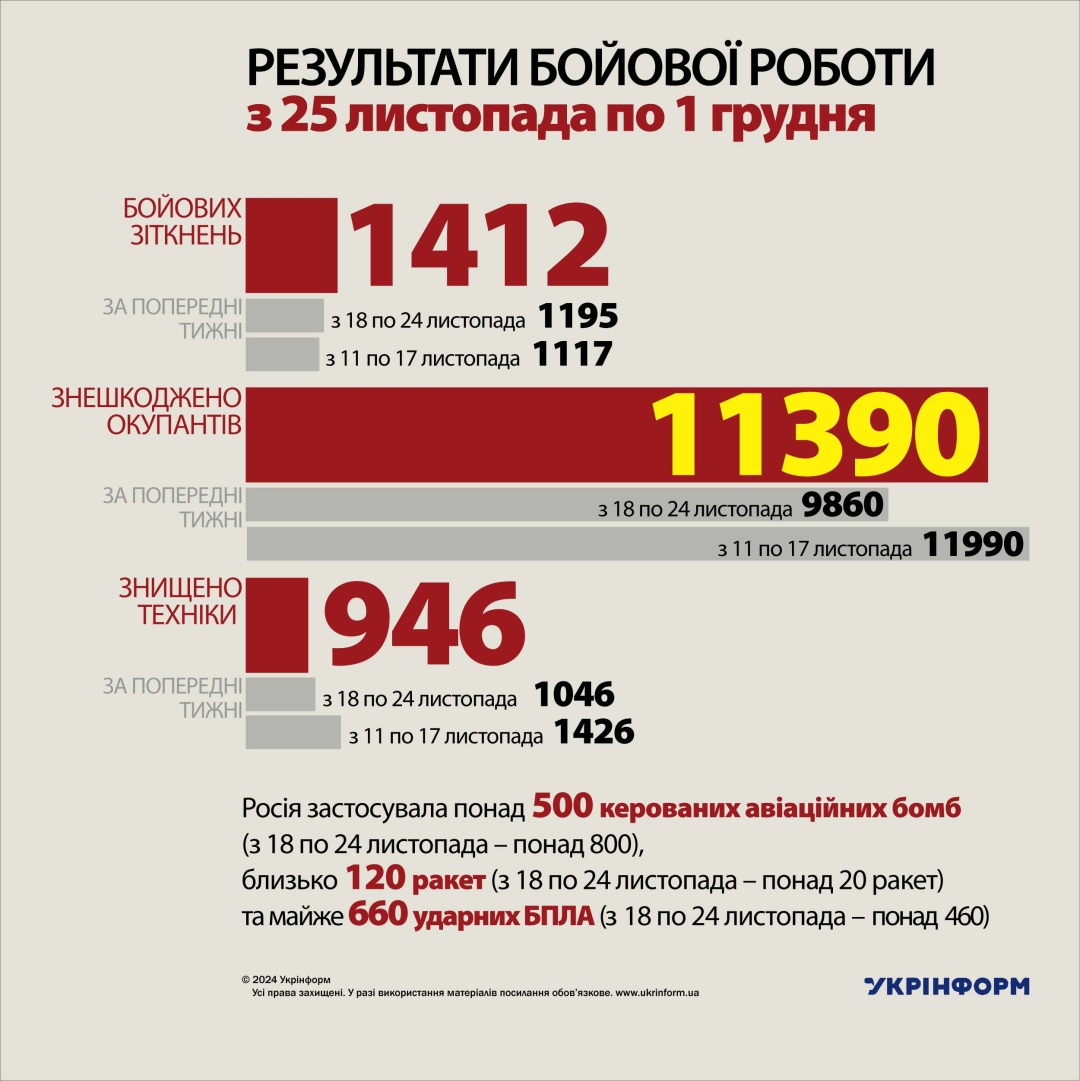
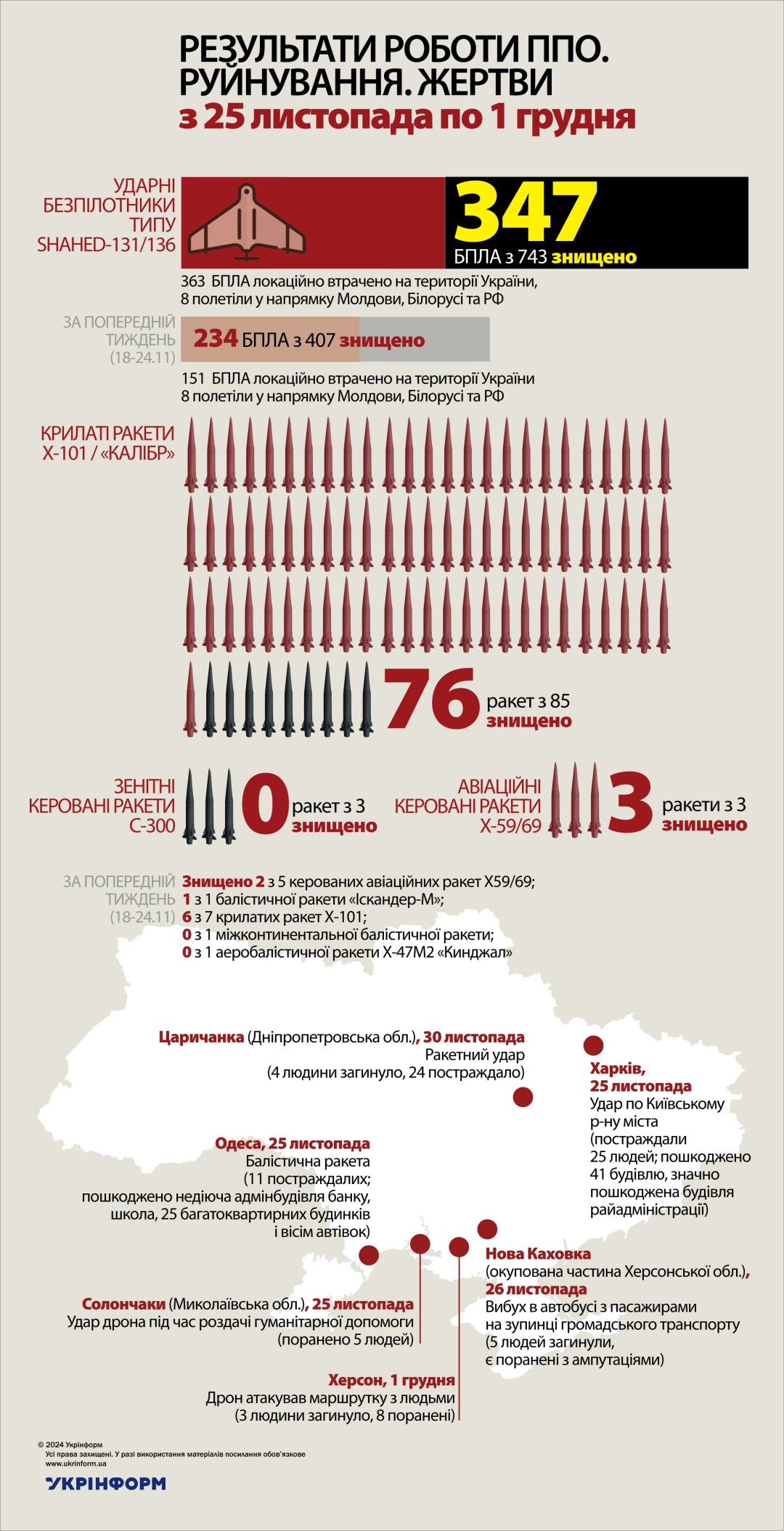
WAR AFTERMATH
Human losses & war crimes
Over the time since the onset of Russia’s full-scale war in Ukraine in February 2022, Russian forces have committed 762 crimes against journalists and other media actors in Ukraine, and 329 Ukrainian media outlets have had to cease their operations due to Russian’s war of aggression. Of these, as few as 52 media outlets have been able to restart their work as of this day.
Since the outset of the Russo-Ukrainian war, 134 Ukrainian art workers and 93 media actors have been killed in Russian attacks.
The UN Human Rights Monitoring Mission has documented 376 cases of conflict-related sexual violence in Ukraine between February 24, 2022 and August 31, 2024, involving 262 men, 104 women, 10 girls and 2 boys. The UN mission works closely with survivors to document cases of conflict-related sexual violence (CRSV), and their testimonies are crucial to ensuring justice, bringing perpetrators to justice and preventing the further spread of this scourge. “Conflict-related sexual violence is a violation of international human rights, humanitarian and criminal law. Preventing this kind of violence and bringing perpetrators to justice is a shared responsibility based on the human rights obligations of states,” the HRMMU emphasized.
The Office of the Prosecutor General has launched a probe into the killing by Russian invaders of the five Ukrainian soldiers they captured in the Pokrovsk District’s village of Petrivka, Donetsk Oblast.
Russians shot and killed five Ukrainian defenders who surrendered while fighting the Russian forces nearby Polohy District’s Novodarivka village in Zaporizhzhia Oblast. The war crime was committed on November 24, according to preliminary findings.
Since the onset of Russia’s all-out war in Ukraine in February 2022, 16 minors have suffered fatal injuries caused by Russian-planted mines and other explosive hazards, while 86 others have been left crippled.
Attacks on the energy sector
Russia has deployed 1,120 massive attacks with missiles and drones targeting the energy infrastructure in Ukraine since the full-scale invasion broke out in February 2022.
Society
Ukraine’s national registry of persons missing due to special circumstances includes 55,000 individuals so far.
UKRAINIAN HOMEFRONT
President Volodymyr Zelensky:
November 28: Has spoken over the phone with UK Prime Minister Keir Starmer amid Russian attacks on Ukraine’s power grid. Zelensky characterised the latest attack by Vladimir Putin's forces as "yet another act of Russian air terror targeting Ukraine's civilian infrastructure, involving over 90 missiles and nearly 100 drones". Russia's renewed attack on Ukraine's power grid, the second in less than two weeks, has added to fears the Kremlin is hoping to cripple its foe's power generation ahead of winter. One million homes have lost power in the war-torn nation, according to Ukrainian officials. Downing Street described the Russian strikes as "egregious", adding that the prime minister characterised them as "systematic" and "depraved" when speaking to Zelensky. Amid the attacks, Zelensky "expressed gratitude for the UK's unwavering support, including the commitment to provide at least GBP3 billion annually for Ukraine's needs". In a fresh signal that British Storm Shadow missiles are likely being used by Kyiv, the Ukrainian president added: "We discussed advancing our defence co-operation and strengthening Ukraine's long-range capabilities." Of his call with Starmer, Zelensky emphasized the need for Ukraine to receive an invitation to join NATO, and added: "We also discussed Ukraine's potential participation in the upcoming JEF (Joint Expeditionary Force) summit in Tallinn next month and agreed to expedite preparations for the historic Partnership Agreement marking 100 years of Ukraine–UK relations."
November 28: enacted into law across-the-board tax hikes Bill No. 11416-d taking effect on November 30.
November 28: endorsed an updated legislation regarding the voluntary return to service after the first instance of unauthorized absence from a unit or desertion.
Following are five key takeaways from President Zelensky’s interview Friday with Sky News:
-- NATO welcoming Ukraine into the alliance could halt the “hot stage” of the war, while Russia would temporarily keep the territory it overtook;
-- Europe is already at war, it therefore must help Ukraine so as to avoid own involvement in direct confrontation with Russia;
-- Ukraine has requested equipment for 10 military brigades to resist Russian aggression, but Western partners have fully outfitted as few as two and a half brigades;
-- We have every opportunity to end this war next year, in 2025. We can do it, but only together with Europe, the United States, of course, with Ukraine as the main part of this agreement. I am sure that we can put enormous pressure on Russia by strengthening Ukraine, then through diplomacy;
-- Meetings with US President Donald Trump should lead to the creation of a plan where Ukraine will be strong.
December 1: President of the European Council António Costa, EU High Representative for Foreign Affairs and Security Policy Kaja Kallas, and European Commissioner for Enlargement Marta Kos arrived in Kyiv on a surprise visit.
President Zelensky met EU High Representative for Foreign Affairs and Security Policy Kaja Kallas to discuss further support for Ukraine’s defense and the progress in negotiations on Ukraine’s European integration.
Prime Minister Denys Shmyhal, at a meeting with EU Council President António Costa, EU High Representative for Foreign Affairs and Security Policy Kaja Kallas, and Enlargement Commissioner Marta Kos, said that Ukraine “needs to secure the necessary investments, in particular, following the example of the Danish model, to continue building up Ukraine's defence capabilities”, needs “more weapons to win, not just to deter”.
December 1: The new European Council president has announced that the EU will allocate €4.2 billion in budget aid to Ukraine by the end of this year, through using Russian assets. Antonio Costa added that the EU plans to give Ukraine €1.5 billion from the start of next year, during a press conference alongside Ukrainian president Volodymyr Zelensky on Sunday. This month, the European Union will provide Ukraine with an additional 4.2 billion euros to support the Ukrainian budget,” he said, and added, “On top of this, starting next month, we plan to provide, for a full year, every month, 1.5 billion euros of assistance. This money comes from the proceeds of Russia’s frozen assets and can also be used for military purposes”. Costa also announced that the EU is preparing its 15th package of sanctions against Russia. He also said that the EU and Ukraine will work together to open at least two chapters in negotiations on Ukraine's European integration in the first half of next year.
***
The Commander-in-Chief of the Armed Forces of Ukraine, General Oleksandr Syrsky:
met Ukrainian and foreign journalists to brief them on the situation on Ukrainian battlefields;
instructed brigade commanders to complement each combat formation with a comprehensive recruiting unit;
said that military enlistment and recruitment centers (MERCS) are key to effective army enlistment effort, so their disbandment will not benefit the defense capability of the Ukrainian state.
COMMENT: Yevhen Dykyi, former company leader at the Aidar Battalion: “Forced enlistment [into the military forces] is a task to be dealt with by civil authorities and law enforcement agencies rather than MERC. But a situation has arisen where the civil authorities and law enforcement agencies have ‘washed their hands’, do nothing whatsoever about mobilization, thus effectively shouldering whole responsibility for this onto MERC’s”.
Ukraine's Defense Ministry has awarded the first state-guaranteed contracts to a Ukrainian private company. The contracts, valued at UAH 4.4 billion (approx. US$106 million), will see the company manufacture and deliver 100 special-purpose armored combat vehicles and as many armored evacuation vehicles.
The Ministry of Defense has approved locally built Oncilla-Shturm armored security vehicle for operational deployment. This modern vehicle is designed to address a variety of tactical and logistical needs on the battlefield. The Oncilla-Shturm vehicle accommodates a crew of three and up to six riflemen, offering robust mobility through its automatic transmission and turbo-diesel engine. With a fuel capacity enabling a range of over 700 kilometers, it ensures sustained performance during extended missions. Built with advanced armor and structural design, the ASV provides comprehensive protection against small arms fire, shrapnel, and mines, safeguarding the crew and passengers in hostile environments. The Oncilla-Shturm comes equipped with cutting-edge features, including automatic tire inflation, hydraulic power steering, air conditioning with heating, an automatic fire suppression system, a filter-ventilation system, and a winch. Its armament includes a remotely controlled weapon station mounted with a heavy machine gun.
The Cabinet of Ministers:
made updates to the Rulers of Procedure on the specifics of electricity importation amid martial law;
decided to earmark UAH 150 million from intellectual property fees to pay for purchases of weaponry and equipment for the needs of the Defense Ministry’s intelligence branch (HUR);
endorsed a 2030 strategy of Veterans’ Policy along with relevant implementation plan;
appointed Oleksandr Karasevych as State Secretary for the Ministry of Foreign Affairs;
November 25: Ukraine and Denmark have agreed to introduce a fast-track mechanism for investments that will help businesses overcome market barriers faster and improve the business climate. The two governments signed the Memorandum of Understanding on the margins of the Danish-Ukrainian Business Forum in Kyiv Monday. The document was signed by Yuliia Svyrydenko, the senior vice Prime Minister and Minister of Economy of Ukraine, and Morten Bødskov, Minister for Industry, Business and Financial Affairs of Denmark. Representatives of the Danish and Ukrainian authorities will hold regular meetings with Danish companies operating in Ukraine. These meetings will provide a platform for discussing the challenges faced in investment and business operations. Additionally, the governments of both countries will maintain regular communication to address urgent issues. According to Morten Bødskov, Minister for Industry, Business and Financial Affairs of Denmark, the Danish government and Danish businesses are united in their support for Ukraine. Despite the current challenges of doing business in Ukraine, Danish companies are eager to engage. Morten Bødskov highlighted the need to support these companies in their efforts. Consequently, an agreement was signed to aid Danish businesses in the reconstruction of Ukraine. Danish companies are prepared to take on greater responsibility and contribute their knowledge and experience in various fields, including renewable energy, new technologies, and strengthening critical infrastructure. This collaboration serves as an example of effective cooperation between Denmark and Ukraine.
The Group of States of the Council of Europe Against Corruption (GRECO) recognized Ukraine’s progress in preventing corruption among lawmakers, judges, and prosecutors. The corresponding report assesses Ukraine’s progress it has achieved in the implementation of the recommendations on the prevention of corruption that were provided in 2017. GRECO believes that Kyiv has made improvements, satisfactorily implementing 15 out of 31 recommendations. Nine of the remaining recommendations have been partially implemented, and seven more were not executed. Ukraine must submit another report on its work on the unfulfilled recommendations by March 31, 2024. As a result, GRECO approved the removal of Ukraine from its blacklist of states where anti-corruption is failing.
November 30: At least 15 of Ukraine's 20 civilian airports have sustained damage since Russia's full-scale invasion began in 2022, Prime Minister Denys Shmyhal said Saturday. Ukraine, which has kept its airspace wholly closed since the onset of the all-out war, has been exploring options to reopen part of it. "We have conducted a risk assessment and identified the air defense capabilities that would suffice to reopen part of our airspace," Shmyhal said. "Security issues and the military situation remain key to this decision," he added. Shmyhal also noted that Russia had targeted Ukraine's seaport infrastructure nearly 60 times over the past three months, damaging or destroying close to 300 facilities and 22 civilian vessels. Earlier this month, Crispin Ellison, a senior partner at insurance broker Marsh McLennan, said that one of Ukraine's airports, Lviv or Boryspil International Airport, close to the capital, could potentially resume operations by the end of January 2025.
November 28: Minister of Foreign Affairs Andriy Sybiha took part in a panel discussion with students and faculty of the Institute of International Relations at Kyiv Taras Shevchenko National University dedicated to the 80th anniversary of its foundation. Speaking at the gathering, he said, in particular, that the concept of achieving ‘peace through strength’ includes clear key elements. First, it is uncompromising respect for the territorial integrity and sovereignty of Ukraine. Secondly, strict adherence to the principle of ‘nothing about Ukraine without Ukraine’. Third, inviting Ukraine to join NATO. Fourthly, the complete lifting of restrictions on the supply of weapons to Ukraine, as well as on the use of these weapons on the territory of the aggressor state, namely against military targets in Russia.”
November 30: Over two dozen countries, representatives of the European Commission and international financial organisations took part in the High Level Dialogue on Ukraine at the International Transport Forum (ITF) in Kyiv Saturday. The key goal of the event was to develop practical solutions to help Ukraine restore and develop its transport infrastructure. “The transport network has been and will continue to be the backbone of the economy and people's mobility. That is why we face a number of challenges in the coming period: to quickly restore the transport infrastructure damaged by the Russians, to continue improving and expanding logistics capabilities, and to improve transportation for passengers,” Ukrainian PM Denys Smyhal told the event.
November 28: Out of 54,000 120 mm locally made mortar rounds suspected of having defects, about 24,000 are to be withdrawn, Strategic Industries Minister Herman Smetanin said Thursday. He said that it would constitute less than 1 percent of the total quantity of mortar rounds produced in-country in 2024. Smetanin's statement follows Ukraine's Defense Ministry’s announcement on Nov. 26 that it had been investigating the causes of the abnormal malfunction of the 120 mm mortar rounds. As the defects were discovered, the ammunition was suspended in the Ukrainian Armed Forces, and the rounds were seized for investigation. One of the manufacturing plants received a complaint about 120 mm shells from the Logistics Command of the Ukrainian Armed Forces on Nov. 20, according to Smetanin.
November 28: Ukraine is ready to host a second global summit aimed at ending Russia's invasion in the "nearest future", the Ukrainian president's chief of staff Andriy Yermak said on Thursday. Ukraine held its first peace summit in Switzerland in June, bringing together over 90 countries to draft a resolution based on Ukraine's proposed conditions to end the war. However Russia was not invited to attend and dismissed its deliberations as meaningless without Moscow's participation . It has also said it would not take part in any follow-up summit organised by Ukraine. "Thanks to active work with our partners, a joint peace framework has already been developed, which will become the basis for the Second Peace Summit, and Ukraine is ready to hold it in the near future," Yermak said. China also stayed away from the June summit, while other major non-Western powers including India, Saudi Arabia and Mexico withheld their signatures from the summit communique, underlining the diplomatic challenge Kyiv faces in marshalling broader global support for its cause beyond its Western allies.
November 27: Head of the Ukrainian Institute of National Remembrance Anton Drobovych said that the agency, in September, requested the Polish Institute of National Remembrance to provide a list of preferred sites for search and exhumation work, but has not yet received a response. In Warsaw on Wednesday, the Ministers of Foreign Affairs, Radosław Sikorski of Poland and Andriy Sybiha of Ukraine issued a joint statement on exhumations [in Volyn Oblast], which have become a tension point in relations between the two countries. The Volyn (Volhynia) tragedy was a series of events that led to the ethnic cleansing of the Polish and Ukrainian populations in 1943 during World War II. It was part of a long-standing rivalry between Ukrainians and Poles in what is now western Ukraine. Poland considers the Volyn tragedy a genocide of Poles.
On December 1, 1991, more than 92 percent of voters in Ukraine approved the Verkhovna Rada’s August 24, 1991 Declaration of Independence. Mere days later, the Soviet Union dissolved and an independent Ukraine was born. The aftershocks of these events are still felt 33 years later, as questions of territory, sovereignty, and national identity remain painful and contested.
More than 760 “invincibility stations” have been set up across Ukraine by the State Service for Emergencies as of December 1.
Since the entry into force of the law on voluntary return to service by those liable for military service who left military units without due permission or deserted for the first time, some 4,000 military personnel have already submitted relevant petitions, half of them have returned to fulfilling their constitutional duty. Military personnel who for the first time left military units or places of service without due authorization or committed desertion, and who voluntarily return to service no later than January 1, 2025 will continue their military service without remorse and conflicts with the legislation of Ukraine. Such persons will remain eligible for monetary allowance, food allowance and allowances of other categories as well as the benefits and social security guarantees established by law.
WAR ECONOMY
The government has paid UAH 270 million worth of monetary compensations to employers for hiring 13,400 internally displaced persons so far this year – Ministry of Economy.
JSC AT Ukrgazvydobuvannya, part of the Naftogaz Group, has launched a new 4,202m deep, 170,000-cubic-meter-per-day well at a newly discovered natural gas field.
In January-October 2024, banks brought $12.88 billion worth of cash to Ukraine, 81.4% up year-on-year.
November 28: World Bank has approved an additional USD 664 million in funding for the project Investing in Social Protection for Inclusion, Resilience, and Efficiency (INSPIRE). Of this amount, USD 602 million will be transferred to the base part of the National Budget of Ukraine. The INSPIRE project aims to ensure social security for low-income and vulnerable populations in Ukraine amid and after the war, improve access to social services and assistance, and streamline the social security support system to respond quickly to possible challenges of the present and future.
A total of 85 million tons of shipments, including 56.7 million tons of grain have been exported through the Ukrainian Black Sea corridor since Aug. 16, 2023.
In January through November, Ukraine’s State Fiscal Service raised taxes amounting to UAH 48 billion in excess of the budget revenue target.
November 29: Ukraine has received $100 million as part of a loan from South Korea for budget assistance, the first time the country is providing aid to Ukraine's state budget. The funds will be devoted to Ukraine's social security sector by supporting budget expenses.
In November 2024, UAH 216.2 billion worth of taxes, fees, and mandatory payments was transferred to the base part of the national budget.
ALLIED AND PARTNERS’ AID
November 25-26: Minister of Foreign Affairs of Ukraine Andriy Sybiha visited the Italian Republic to attend the ministerial meeting of the Group of Seven. During a meeting with his Qatari counterpart Mohamed Bin Abdulaziz Al-Khulaifi in Rome, the Foreign Minister agreed on advancing cooperation and expanding Qatar's humanitarian role; discussed with his South Korean counterpart Cho Tae-Yul an expansion of cooperation in several different areas.
November 25: The Ministry of Agrarian Policy and Food of Ukraine, the Ministry of Agriculture of Lithuania and the Government of Great Britain signed a tripartite memorandum of understanding. Its purpose is to detect grain stolen by Russia from its occupied territories in Ukraine, which is transported through Lithuanian ports. According to Ukrainian Minister of Agrarian Policy Vitaly Koval, the document which he signed in Vilnius alongside his Lithuanian counterpart Kazis Starkevičius is an important countermeasure against the illegal export of Ukrainian grain. Thanks to the memorandum, participating countries will have the opportunity to introduce stringent checks and legally oblige Russia and other high-risk countries to prove the legality and the origin of grain transported through Lithuanian seaports.
November 27: The heads of government of Denmark, Estonia, Finland, Latvia, Norway, Poland, and Sweden agreed to strengthen their support to Ukraine in the coming months to counter Russia's full-scale war during a summit in Harpsund on Wednesday. Baltic and Nordic countries as well as Poland have been Kyiv's staunchest supporters since the outset of the all-out war, providing the country with military, financial and humanitarian aid. "Ukraine must be able to prevail against Russia’s aggression, to ensure a comprehensive, just and lasting peace," the nations' joint statement says. "In the coming months, we will step up our support, including to the Ukrainian defense industry, and we will invest in making more ammunition available to Ukraine." The announcement comes at a critical time, as Moscow's forces make their fastest gains in months in Ukraine's east and North Korean troops are stationed in Russia's Kursk Oblast.
Sweden has transferred spare part kits for 14x JAS 39 Gripen fighters to Ukraine, while the aircraft proper have not yet been delivered.
November 25: The UK has blacklisted another 30 oil tankers in Russia's "shadow" fleet in its largest sanctions package of this kind to date. The British government has imposed sanctions on 30 ships of Russia’s “shadow fleet”. To circumvent the G7's price cap on seaborne Russian oil exports, Russia has amassed a large tanker fleet of 586 ships totaling 57.1 million dwt, according to a recent assessment based on S&P Global Commodities at Sea and Maritime Intelligence Risk Suite data, most of which are old ships lacking sufficient insurance. In a statement, the UK Foreign Office said the latest enforcement -- aimed at undermining Russia's war chest against Ukraine and reduce environmental risks -- would bring the total number of UK-sanctioned oil tankers to 73, the largest of any nation and compared with 39 blacklisted by the US and 19 by the EU. "Russia's oil revenues are fueling the fires of war and destruction in Ukraine," UK Foreign Secretary David Lammy said in a statement as he attended the G7 meeting in Italy.
COMMENT: Volodymyr Zelensky, President of Ukraine: “Thirty tankers have been sanctioned. This is an important move. And it would be appropriate for European partners – at the pan-EU level – and other partners to support these sanctions. The lesser Russia’s oil revenues, the less opportunity it will have to wage the war.”
November 28: The Netherlands delivered three new Patriot air defense missile launchers to Ukraine.
November 25: Germany will supply Ukraine with two additional IRIS-T air defense systems, including the medium-range SLM and short-range SLS modifications, by the end of the year, Major General Christian Freuding, head of the Bundeswehr's Situation Center Ukraine, told journalists in Kyiv on Monday. "The next IRIS-T SLM (medium-range) and SLS (short-range) systems are to arrive in Ukraine in the coming days and weeks, before Christmas Day," Freuding said. He added that Germany’s support for Ukraine would continue beyond Christmas and the Feb. 23 federal elections in Germany.
Ukrainian Foreign Minister Andriy Sybiha has requested his NATO counterparts to invite Ukraine to join the alliance at the NATO Foreign Ministers’ meeting set for December 3-4, 2024 in Brussels.
Former British Prime Minister Boris Johnson has called for British and European peacekeepers to be deployed to Ukraine as part of potential peace deal. He said that any possible ceasefire should involve a European peacekeeping mission including British forces to defend the front line. "I don’t think we should be sending in combat troops to take on the Russians," Johnson said. "But I think as part of the solution, as part of the end state, you’re going to want to have multinational European peace-keeping forces monitoring the border, helping the Ukrainians."
November 26: Germany has once again made funds available to repair Ukraine's energy infrastructure, allocating €65 million ($68 million) to the Ukraine Energy Support Fund, Germany's Economy Ministry announced on Tuesday. The fund has been supported by international donors since 2022, following the start of Russia's full-scale invasion of the country. German Economy Minister Robert Habeck stressed that Ukraine's civilian energy infrastructure continues to be the target of massive Russian air strikes. A collapse of the energy supply in the third winter of war would have catastrophic consequences for the Ukrainian economy and population," said Habeck, adding that this makes support for Ukraine more important than ever.
Great Britain covertly transferred dozens of Storm Shadow missiles to Ukraine a few weeks ago.
The ninth meeting of the Mine Action Coalition, jointly chaired by Lithuania and Iceland, discussed Ukraine’s requirement for equipment and weapons, and agreed on a Roadmap for assistance through 2034.
Russia has failed, for the second year in a row, to secure a seat in the Executive Council of the Organisation for the Prohibition of Chemical Weapons (OPCW).
Ukrainian Defense Minister Rustem Umerov shared intelligence obtained by Ukraine regarding military cooperation between Russia and North Korea at a meeting in Seoul with South Korean President Yun Seok-Yeol, discussed a potential joint response to emerging security threats.
Ukraine has received USD 235 million from Japan under World Bank’s LEARN and RISE projects to support education and the private sector.
General Keith Kellogg, tapped by US President-elect Donald Trump as Special Envoy for Ukraine and Russia, stated that he is ready to secure “peace through strength”. Ukraine’s Ministry of Foreign Affairs welcomed the nomination and voiced readiness to cooperate.
November 30: US President-elect Donald Trump said he would require countries that are part of BRICS — a China- and Russia-backed group of emerging economies — to commit to not creating new currency or face 100% tariffs during his administration. “The idea that the BRICS Countries are trying to move away from the Dollar while we stand by and watch is over. We require a commitment from these Countries that they will neither create a new BRICS Currency, nor back any other Currency to replace the mighty U.S. Dollar or, they will face 100% Tariffs, and should expect to say goodbye to selling into the wonderful U.S. Economy,” Trump posted on Truth Social on Saturday.
US intelligence assess that Washington's decision to authorize Ukraine to strike deep into Russia with US-provided missiles has not increased the risk of a nuclear attack, despite Putin's increasingly belligerent statements.
WAR&LIFE
November 25/ A Life Symphony performed by Ukrainian surgeons on the 1,000th day of the war.
QUOTE: “The yet unborn child has a heart defect incompatible with life; nature has confused in places the aorta and the pulmonary artery -- a congenital cardiac defect (deficiency in the septum between the aorta and the pulmonary artery) that effectively doomed the newborn to die within days after birth. ... But that was not going to happen! Ukrainian cardiac surgeons will perform an extremely intricate surgery immediately after a cesarean section -- for the first time globally! -- to repair a cardiac deficiency with a jewelry-like precision, which will take just a few minutes for the tiny man to become healthy!”
November 26/ “North Group-Ukraine”: the new alliance will directly invest in the defense industry
QUOTE: “Europe’s problem: there are not enough weapons, but there is a lot of money. Where to direct the money? The answer is obvious enough: to invest in the defense industry of Ukraine. Because Ukraine is Europe. Indeed, we are not yet members of the EU or NATO. But the key words are “not yet”. The formalities need to be removed. After all, when talking about a common European defense, it’s definite Ukraine will become a part to it.”
November 28/ How to communicate ethically with military members and veterans?
QUOTE: “First of all, psychologists emphasize that veterans are people with different life experiences, from different social strata, of different professions, age groups, different views, values, and life goals. What unites them is combat experience, which immediately affects their worldview. And the first step to understanding veterans is determining who they are.”
November 28/ Mobilization: it’s not about MERC, but more about a systemic approach.
QUOTE: “Who is going to take over the job currently done by the MERCS – recruiting companies? Are you sure they are able to replace the MERC? Whatever anyone says, the MERC performs its functions quite qualitatively in the current circumstances.”
Compiled by Maryna Dmytriv, Kyiv

